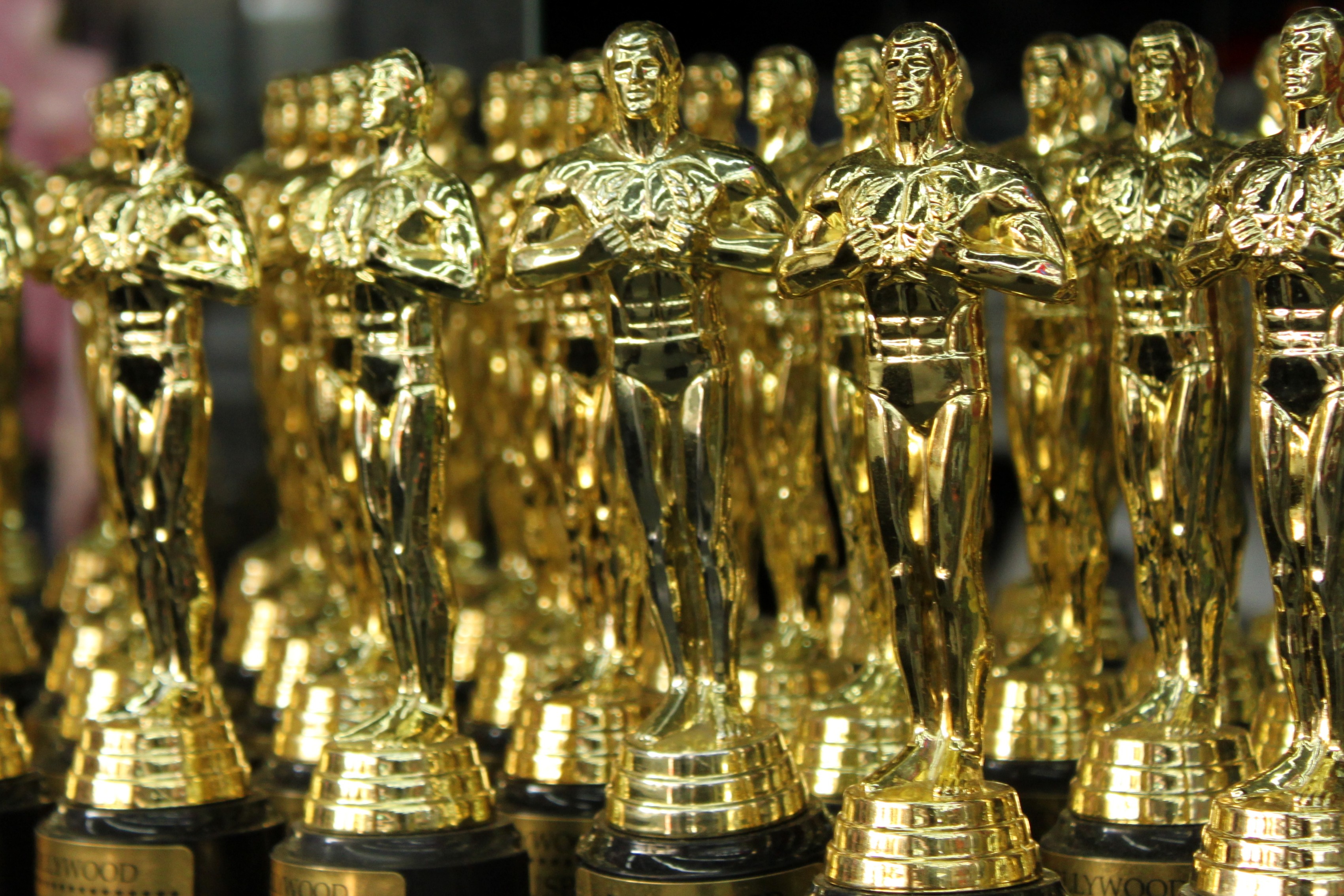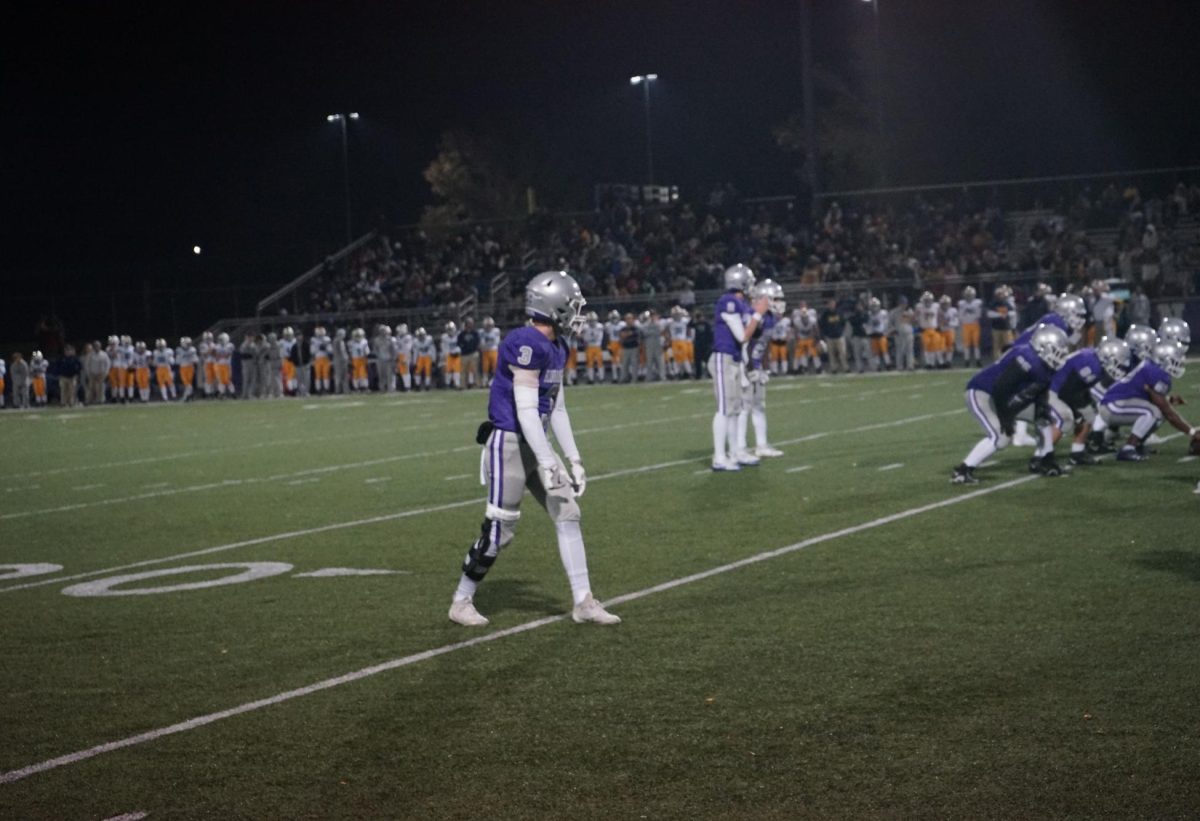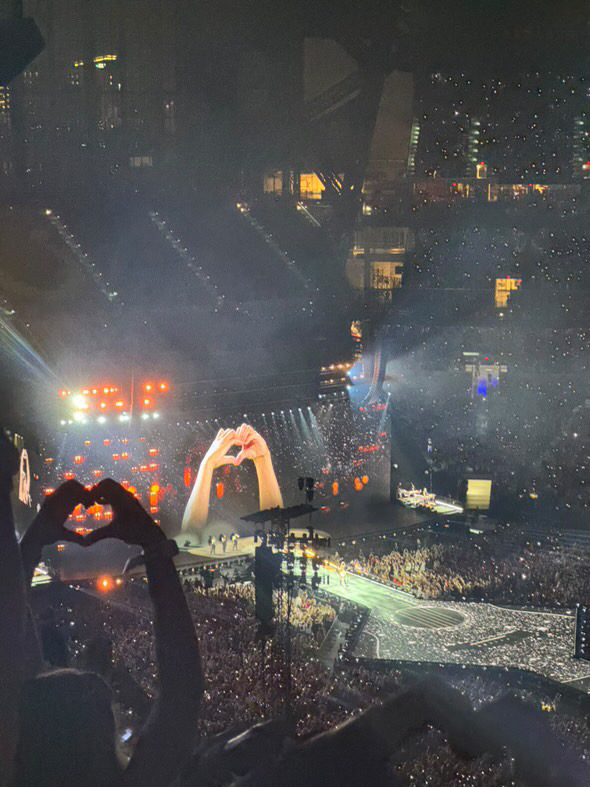
With the 89th Academy Awards coming up this Sunday we thought it’d be an excellent opportunity to take a look at the films nominated for Best Picture. What with last year’s #OscarsSoWhite backlash, it’s refreshing to see such a diverse pool of nominees this year, with four of the nine nominees featuring casts led predominantly by people of color. I’m rather pleased with this pool of nominees; I’ve not yet had the opportunity to see them all but those I have seen have all been thoroughly enjoyable at the least. These nine films represent an incredibly diverse selection of films spanning numerous different genres, and perhaps more vitally, a number of them are stunningly relevant (think “Arrival,” “Fences,” “Hidden Figures,” and “Moonlight”).
Arrival — dir. Denis Villeneuve
Quebecois filmmaker Denis Villeneuve made a name for himself with the superb crime thriller “Prisoners” and last year’s riveting drug cartel thriller “Sicario,” which managed to snag three nominations at last year’s Oscars. His latest film, a fascinating high-concept science fiction piece, follows a linguist (Amy Adams) and a physicist (Jeremy Renner) as they attempt to communicate with aliens after twelve identical ships appear around the globe. It’s a stunning and incredibly fascinating film about the way we communicate with one another, with breathtakingly relevant themes regarding the significance of peaceful international communications and cooperation. “Arrival” quite literally couldn’t have come at a better time; it’s a bold testament to the importance of international peace at a time when international tensions are incredibly high. Furthermore, “Arrival” provides a subversive and surprisingly poignant exploration of grief and the way we process it. Perhaps those looking for a sci-fi film akin to last year’s action/adventure-heavy “The Martian” will be alienated by its slow, methodical pace, but it’s a deeply human and incredibly relevant film — a must see for sure.
Fences — dir. Denzel Washington
Long-time bonafide movie star and two-time Academy Award winner Denzel Washington steps behind the camera to direct “Fences,” an adaptation of the well-known play of the same name. Washington also stars in the film, alongside Viola Davis (both actors received nominations for their performances), as a man whose crushed dreams of becoming a professional baseball players threaten to rupture the bonds between his family members. Though “Fences” is a period piece set in the 1950s, the social commentary of its core narrative is undeniably present and incredibly relevant. As a small-scale, character-based interpretation of a stage play, “Fences” makes a nice companion piece to bigger films like “Arrival” in the pool of nominees.
Hacksaw Ridge — dir. Mel Gibson
War films are a hard thing to get right; as a genre, they tend to rely on conventions and themes so similar from film to film that they all feel rather trite, but if the Academy’s decision to nominate “Hacksaw Ridge” for Best Picture is to be believed, then Mad Mel’s got an ace up his sleeve. The film stars former “Amazing Spider-Man” star Andrew Garfield as a medic and staunch pacifist deployed to the front lines of Okinawa during World War Two. Obviously the grueling violence of war and the faith-based pacifism which drives the character’s moral code do not mix well, offering the film ample opportunity to draw some rather interesting conclusions about morality from the mix. Gibson might not be the most respectable or dignified filmmaker in Hollywood but he’s undeniably got talent.
Hell or High Water — dir. David Mackenzie
Every year’s Academy Awards tend to have at least one film that absolutely no one has heard of until its name is read at the ceremony. “Hell or High Water” is one such film. The film, which follows two brothers as they plan and execute a series of bank robberies to prevent their land from being foreclosed upon, stars Chris Pine, Ben Foster, and Jeff Bridges and paints a bleak but chillingly accurate portrait of life in a poverty-stricken region of the American southwest, channeling the anxieties of post-market crash America into a taut and engrossing thriller.
Hidden Figures — dir. Theodore Melfi
I’ll admit that when I first saw the trailer for “Hidden Figures,” I was a bit skeptical. It’s a film clearly intended for audiences of all ages, and in that it occasionally simplifies what’s certainly an incredibly complex issue, but that’s of little consequence given that it’s as consistently entertaining as it is. The film, which follows a trio of women of color employed by NASA to make important calculations for important projects early in the space film is a heartfelt testament to the resilience and strength of people of color. It’s a film as much about mathematical calculations and space travel as it is about three brave women fighting for equality and recognition in a time when such things were typically not given to people, especially women, of color. All three leads (Octavia Spencer, Taraji P. Henson, and Janelle Monae) deliver excellent performances, particularly Henson, who delivers an emotionally raw and genuinely showstopping monologue about equality that ought to have earned her a Best Actress nod (shame on you, Academy). For a film about something so dull as mathematics, “Hidden Figures” is surprisingly energetic and an absolute blast.
La La Land — dir. Damien Chazelle
I am, by nature, not necessarily a fan of musicals, yet Damien Chazelle’s enchanting and engrossing film about love and dreams in the ‘City of Stars’ swept me off my feet. The two leads (Emma Stone and Ryan Gosling) are absolutely electric (and I’ll be shocked if Stone doesn’t take home the trophy she deserved for “Birdman” two years ago). Their singing voices are perhaps not the best, but their chemistry is dynamic and undeniably captivating. All of the film’s songs — particularly the emotional apex, “Audition (the Fools who Dream)” — are immediately catchy and accompanied by appropriately lavish and showy dance numbers, but what really makes “La La Land” stand out in my book is its subversive use of the tropes of the musical genre to contrast the fantasy of falling in love and achieving one’s dreams with the crushing reality of, well, real life. It’s sure to leave you a bit misty-eyed, and you’ll be whistling the tune of “City of Stars” for weeks.
Lion — dir. Garth Davis
If we’re being completely honest, I completely forgot Dev Patel existed after his role in “Slumdog Millionaire.” What a refreshing reminder of such a talented young actor “Lion” is. The film, which follows an orphaned boy trying to track down his birth family by using Google Earth, is at once an interesting look at how technology has impacted our world, as well as a heartfelt melodrama which explores a delicate concept not often addressed in mainstream cinema, and for that I would contend it deserves quite a bit of attention. It’s a film likely to touch the hearts of anyone who’s ever experienced long-term separation from a close family member or loved one, and while such a film could easily dip into hokey melodrama, its Academy Award nomination suggests that this is not the case.
Manchester by the Sea — dir. Kenneth Lonergan
Grief is not an easy concept to explore in cinema, literature, or for that matter, real life. It’s not something that’s typically understood and it’s not something that’s readily comprehensible to those who’ve not experienced it directly or indirectly. In fact, prior to seeing “Manchester by the Sea,” I don’t think I fully realized how tremendously understood grief is as an emotion. It’s refreshing to see a film that understands it for what it is, opting to paint a textured and emotionally complex portrait rather than merely exploiting it for trite melodrama. “Manchester by the Sea” follows a Lee (Casey Affleck), a man who, for lack of a better description, despises his life and every facet of it. After receiving news that his brother has passed away, Lee travels to Manchester by the Sea to care for his nephew (Lucas Hedges). On paper, “Manchester by the Sea” sounds like a relentlessly depressing film; one that relishes sadness and forgoes all happiness, but it is not. On the contrary, it is a deeply introspective film which understands grief and the complex and diverse ways in which we process it, and most surprisingly of all, it’s rather funny.
Moonlight — dir. Barry Jenkins
A queer film has never won Best Picture at the Academy Awards. Nor has a film headlined by an exclusively black cast. If “Moonlight” wins (and it undoubtedly should), it will make history on multiple fronts. But beyond being a triumphant film for representation of black people, queer people, and most importantly black, queer people, “Moonlight” is a landmark cinematic achievement. It’s a stunning exploration of identity and how our environment and culture shapes our own understanding of who we are. It’s also a breathtaking and emotionally raw look at how the stereotypes and expectations, particularly those of toxic masculinity enforced on young, black males, can hinder a person’s understanding of themself. “Moonlight” follows Chiron, a young black boy growing up in a drug and crime-ridden district of Miami at three crucial chapters of his life. We see him portrayed by three different actors across these three chapters, each of which perfectly encapsulates the pain, sorrow, and ecstasy of falling in love and growing up whilst unable to live truly to oneself. There is no other film this year that is as exquisitely made, or as emotionally ripe as “Moonlight,” and I firmly believe that there is no other film as deserving of Best Picture as this.




